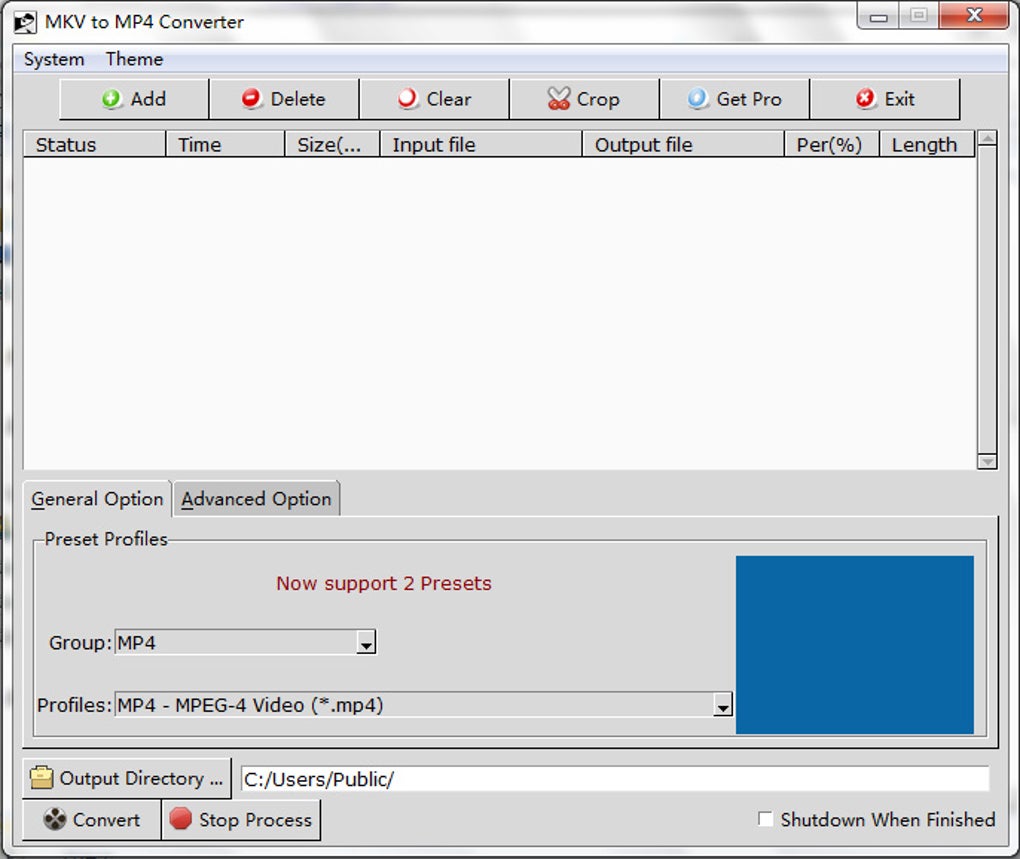What is an MKV file? If you’ve ever delved into the world of video files, chances are you’ve encountered this versatile format. MKV, or Matroska Video, has become one of the most widely used multimedia container formats due to its flexibility and compatibility with various codecs. In this article, we’ll explore everything you need to know about MKV files, including their advantages, disadvantages, and how they differ from other video formats.
As technology advances, the demand for high-quality video files continues to grow. MKV files have emerged as a preferred choice for many users because of their ability to store multiple audio tracks, subtitles, and metadata in a single file. This makes them ideal for streaming, downloading, and archiving videos.
In this guide, we’ll provide a detailed overview of MKV files, covering everything from their origins to practical tips for working with them. Whether you’re a beginner or an advanced user, this article will equip you with the knowledge you need to make the most of MKV files.
Read also:Kirk Acevedo The Remarkable Journey Of A Multifaceted Actor
Table of Contents
- What is an MKV File?
- History of MKV Format
- Advantages of Using MKV Files
- Disadvantages of MKV Files
- MKV vs Other Video Formats
- How to Play MKV Files
- Converting MKV Files to Other Formats
- Editing MKV Files
- Security Concerns with MKV Files
- Frequently Asked Questions
What is an MKV File?
An MKV file, short for Matroska Video, is an open-standard multimedia container format designed to hold an unlimited number of video, audio, picture, or subtitle tracks in a single file. It is part of the Matroska family of formats, which also includes MKA (audio-only) and MKS (subtitles-only). The primary goal of MKV is to provide a universal format that can accommodate various types of multimedia content seamlessly.
One of the key features of MKV is its ability to store multiple audio tracks, subtitles, and metadata, making it highly versatile for both casual users and professionals. This flexibility has contributed to its growing popularity among video enthusiasts and content creators.
Key Characteristics of MKV Files
- Open Source: MKV is an open-standard format, meaning anyone can use or modify it without licensing fees.
- Compatibility: MKV supports a wide range of codecs, including H.264, H.265, and VP9, ensuring compatibility with most devices and platforms.
- Extensibility: The format allows for easy addition of new features and updates, keeping it relevant in the ever-evolving digital landscape.
History of MKV Format
The MKV format was developed by the Matroska project, which began in 2002. The name "Matroska" is derived from the Russian word "matryoshka," referring to the traditional Russian nesting dolls. This name symbolizes the format’s ability to "nest" multiple types of content within a single file.
Over the years, MKV has evolved to become one of the most widely used video formats. Its open-source nature and support for modern codecs have made it a favorite among developers and users alike. Today, MKV is supported by a wide range of media players, operating systems, and devices, further cementing its place in the digital world.
Advantages of Using MKV Files
There are several reasons why MKV files have gained such widespread adoption. Below are some of the key advantages of using MKV files:
- Multi-Track Support: MKV files can store multiple audio and subtitle tracks, allowing users to switch between languages or subtitles effortlessly.
- High-Quality Video: MKV supports advanced codecs like H.265, enabling high-quality video with minimal file size.
- Metadata Storage: MKV files can include metadata such as chapter markers, cover art, and descriptions, enhancing the user experience.
- Open-Source: As an open-standard format, MKV is free to use and modify, making it accessible to everyone.
Disadvantages of MKV Files
While MKV offers numerous benefits, it also has some drawbacks that users should be aware of:
Read also:Mariafe Artacho Del Solar A Rising Star In The World Of Entertainment
- Limited Native Support: Not all devices and platforms support MKV files natively, requiring users to install additional software or convert files.
- File Size: Depending on the codec used, MKV files can sometimes be larger than other formats, especially when high-quality video is prioritized.
- Complexity: The flexibility of MKV can make it more complex to work with compared to simpler formats like MP4.
MKV vs Other Video Formats
Comparison with MP4
MP4 is another popular video format that shares many similarities with MKV. However, there are key differences between the two:
- Compatibility: MP4 has broader native support across devices and platforms, while MKV requires additional software on some systems.
- Features: MKV offers more advanced features, such as multi-track support and metadata storage, which are not always available in MP4.
- Openness: MKV is an open-standard format, whereas MP4 is based on a proprietary standard.
How to Play MKV Files
Playing MKV files is straightforward, especially with the right software. Below are some of the most popular media players that support MKV:
- VLC Media Player: A free, open-source player that supports a wide range of formats, including MKV.
- Kodi: A powerful media center application that can handle MKV files with ease.
- Windows Media Player: With the installation of a codec pack, Windows Media Player can play MKV files.
Converting MKV Files to Other Formats
While MKV is a versatile format, there may be situations where you need to convert it to another format. Below are some tools and methods for converting MKV files:
- HandBrake: A free and open-source tool that allows you to convert MKV files to other formats like MP4.
- Online Converters: Websites like CloudConvert and Online-Convert offer easy-to-use interfaces for converting MKV files.
- FFmpeg: A command-line tool for advanced users who need precise control over the conversion process.
Editing MKV Files
Editing MKV files requires specialized software that can handle the format’s complexity. Below are some tools that are well-suited for editing MKV files:
- MKVToolNix: A comprehensive toolkit for creating, editing, and inspecting MKV files.
- Adobe Premiere Pro: A professional video editing software that supports MKV files with the right codec installed.
- DaVinci Resolve: A powerful editing tool that offers extensive support for MKV files.
Security Concerns with MKV Files
While MKV files themselves are not inherently dangerous, there are some security concerns to be aware of:
- Malware Risk: Like any file format, MKV files can potentially contain malware if downloaded from untrusted sources.
- Privacy Issues: Metadata stored in MKV files can sometimes reveal sensitive information, so it’s important to review and edit metadata as needed.
Frequently Asked Questions
What is the difference between MKV and MP4?
While both MKV and MP4 are container formats, MKV offers more advanced features such as multi-track support and metadata storage. MP4, on the other hand, has broader native support across devices and platforms.
Can I play MKV files on my smartphone?
Yes, most modern smartphones can play MKV files with the right app installed. Popular apps like VLC and MX Player support MKV playback.
Is MKV an open-source format?
Yes, MKV is an open-standard format, meaning anyone can use or modify it without licensing fees.
Conclusion
In conclusion, MKV files have become an essential part of the digital media landscape due to their flexibility, compatibility, and advanced features. Whether you’re a casual user looking to enjoy high-quality videos or a professional working with multimedia content, MKV offers a robust solution for your needs.
We encourage you to explore the possibilities of MKV files and take advantage of their many benefits. If you have any questions or feedback, feel free to leave a comment below. Don’t forget to share this article with others who may find it useful!
For more information on video formats and digital media, check out our other articles on the website.
Data Source: Matroska.org, VLC Media Player, HandBrake


